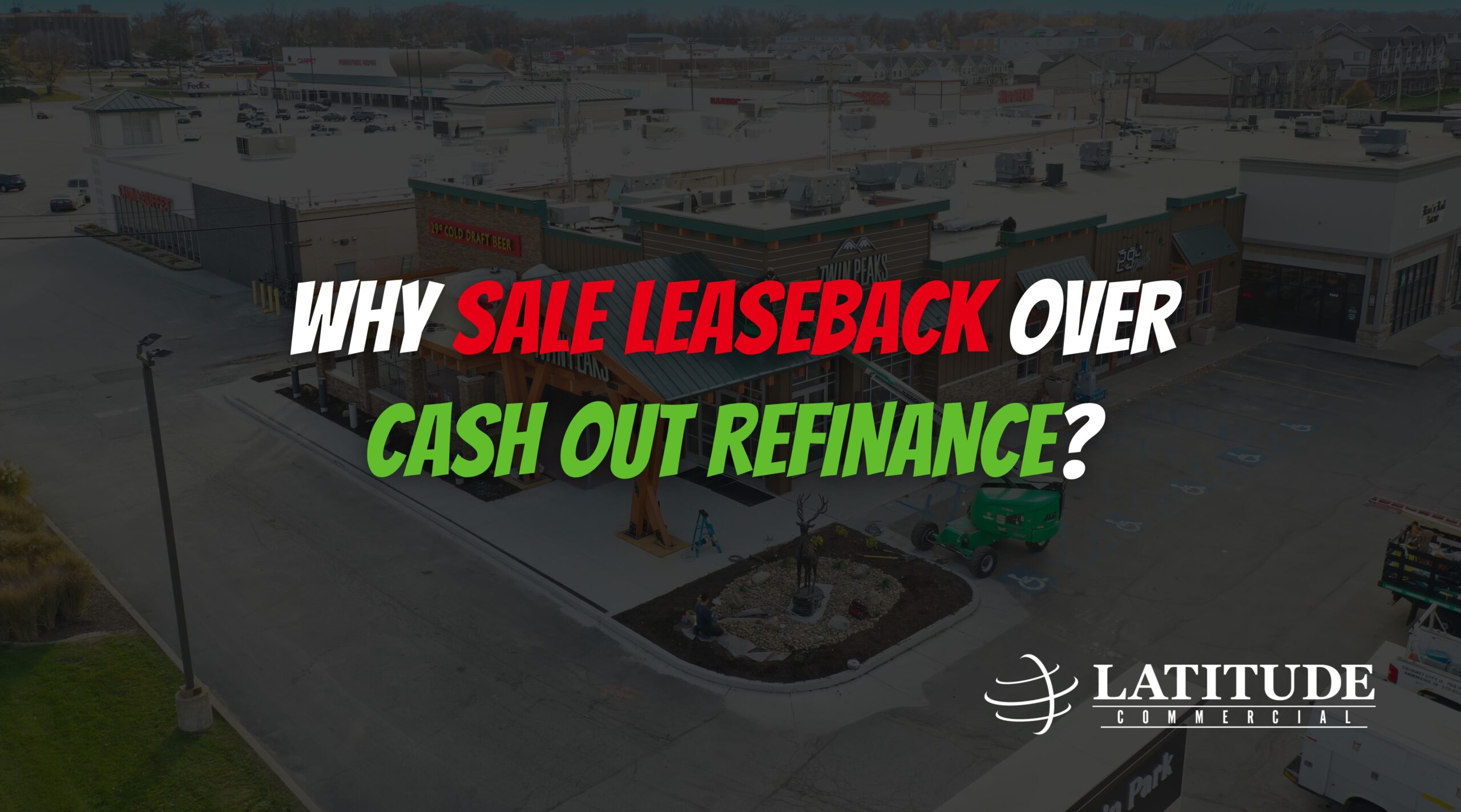
9 Jul
SALE LEASEBACK VS. CASH OUT REFINANCE
What are Sale-Leasebacks and Cash-Out Refinances?
Sale-Leaseback: A sale-leaseback is a financial transaction in which an owner sells their property and simultaneously leases it back from the buyer. This allows the owner to access the capital tied up in the property while retaining the use of the property.Cash-Out Refinance: A cash-out refinance is a refinancing option where a new mortgage is taken out on a property for more than the existing loan amount, and the difference is provided to the property owner in cash. This method allows the owner to tap into the property’s equity without selling it.
Benefits of Sale-Leasebacks
- Capital Infusion Without Additional Debt: Sale-leaseback allows you to unlock all the value in your building without taking on debt. By selling the property and leasing it back, you’re essentially monetizing the property’s value without increasing leverage on your balance sheet.
- Improved Cash Flow: Through a sale-leaseback, you can improve your cash flow by converting an illiquid asset (the property) into liquid capital. This liquidity can be used for various purposes such as expansion, debt reduction, or other investment opportunities.
- Elimination of Property Management: Sale-leaseback transactions often involve the seller becoming a tenant. This arrangement can eliminate the responsibilities of property ownership, including maintenance, repairs, and management, thereby freeing up time and resources.
- Flexible Terms: Sale-leaseback agreements can offer flexibility in lease terms, allowing the seller (now tenant) to negotiate favorable terms such as lease duration, rent escalations, and renewal options. This flexibility can provide stability and predictability for the tenant’s operations.
- Tax Benefits: Depending on the jurisdiction and the specifics of the transaction, sale-leaseback arrangements may offer certain tax advantages. For instance, the lease payments made by the tenant (previously the property owner) may be deductible as operating expenses, potentially reducing taxable income.
- Optimal Use of Capital: Sale-leaseback transactions can enable businesses to redeploy capital into core operations or high-return projects instead of tying it up in real estate assets. Businesses can now reinvest that capital into growth initiatives, such as expansion into new markets, research and development, or acquisitions.
- Mitigation of Market Risks: By selling the property and leasing it back, the seller mitigates exposure to fluctuations in property values and market conditions. Instead, they become primarily concerned with the terms of the lease, which can be structured to provide stability regardless of market dynamics.
Factors to Consider When Choosing Between Sale-Leaseback and Cash-Out Refinance
FAQs
Latitude Commercial provides commercial real estate services such as purchasing, leasing, landlord representation, tenant representation, and commercial property management throughout the states of Illinois and Indiana. To find out how we can help you, call us today at (219) 864-0200.
Click here to see commercial properties available for lease and for sale near you!
YOU MIGHT ALSO BE INTERESTED IN…
New Small Business Reporting Laws 2024
Research and Insights
2024 Annual Market Report
Our Annual Market Report for 2024 provides an in-depth analysis of the commercial real estate…
View More2023 Annual Market Report
In 2023, Northwest Indiana's commercial real estate sector weathered shifts in interest rates and inflation,…
View More2022 Annual Market Report
We are pleased to present the 2022 Annual Report for the Commercial Real Estate market…
View MoreCase Studies
At Latitude Commercial, we use cutting-edge tools like Placer AI to analyze site performance and…
View MoreChallenge Aaron McDermott, CCIM found a listing for an absolute no reserve auction of a…
View MoreChallenge Aaron McDermott was representing the franchisee of Buffalo Wild Wings on locating sites for…
View More





